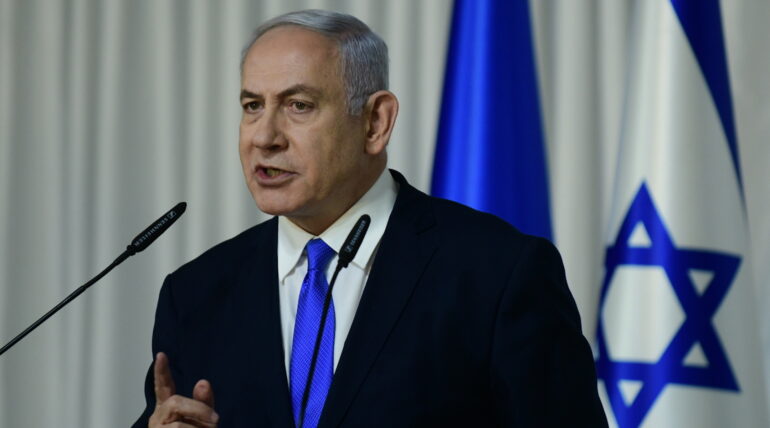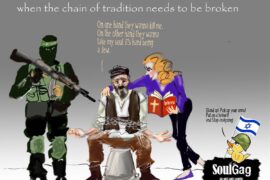In an interview with Channel 12 Saturday night, Prime Minister Binyamin Netanyahu (Likud) committed to legally annexing West Bank Jewish communities to the State of Israel, thus protecting them from threats of demolition.
He stated in that same interview, however, that he would destroy the Bedouin village of Khan al-Ahmar if he wins another term.
The prime minister’s interview was part of a last ditch pre-election effort to lure voters away from more nationalist parties in order to give himself more options and negotiating leverage when forming a new governing coalition after elections.
The more votes Likud receives on Tuesday, the stronger Netenyahu’s position will be in negotiations with potential coalition partners.
United States President Donald Trump wants Netanyahu to form a government with Blue & White leader Benny Gantz in order to ease the acceptance of Washington’s new plan to partition the country into two separate states. A strong enough electoral showing would allow the prime minister to form such a government and implement Trump’s plan.
But what is especially unsettling about Netanyahu’s Saturday night interview is his assumption that the very same voters who care about saving Judean communities from destruction actually want to see Palestinian communities like Khan al-Ahmar get razed.
The extent to which Jewish nationalists express support for the demolition of Khan al-Ahmar shows how outdated Zionism as a narrow particularist national ideology has become. Zionism as a unique stage of Jewish liberation was relevant when vulnerable Jews experienced harsh oppression in foreign lands at the hands of anti-Semitic host populations.
But Zionism succeeded in returning the Jewish people home to our land and to power. The moment we have power, we can no longer concern ourselves only with self-preservation. Power must shift our focus from that of an object with a problem to a subject with desires. We need to decide what kind of society we want to build and how that society can be an instrument for making the world a better place.
Zionism focused on Jewish vulnerability and oppression while raising security to a level of supreme holiness. The “us versus them” approach was necessary when trying to liberate ourselves from the very real vulnerability and oppression we suffered. But now that we’ve succeeded in attaining independence in our land and reviving our ancient warrior prowess, we need to progress beyond Zionism and formulate a new Jewish liberation ideology that can make space for the Other in our society.
Equally disappointing is the fact that Palestinians and their supports rarely oppose the destruction of Jewish homes. Rather than succumb to the trap of an “us versus them” mindset, West Bank Jews and Palestinians should realize that, although our situations are radically different, the injustices both peoples experience often result from the same core issues plaguing Israeli society. Whether directed against Palestinians or Jews, Israel’s politically-motivated policy of demolishing homes and destroying entire communities stems from the same sense of vulnerability that fuels our conflict and keeps us subservient to the United States.





